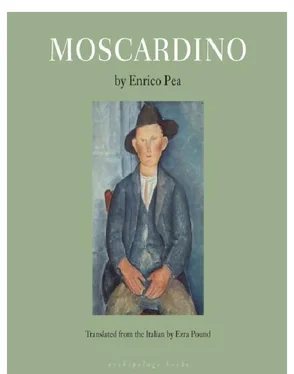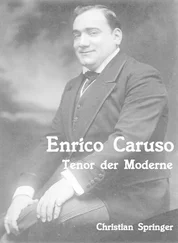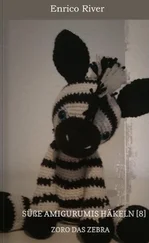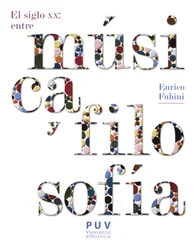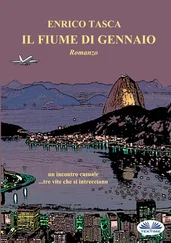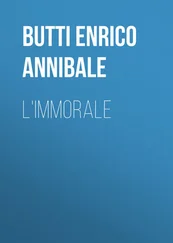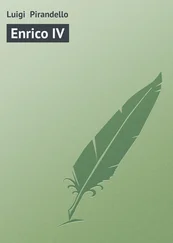He was found by relatives, peasants near the forest. Recognized, captured, like a wild animal he tried to bite them, refused food, let out guttural howls like a lion.
Thus he was brought back to his native country, and my grandfather knew him in the days of his adventure.
I followed him step by step on his return voyage. He followed, he began to call his father, then he remembered his smallest sister.
He learned to smile. When the doctor pricked him with a needle he felt it. And man is man on condition that he feels pain always in two ways; that he feels grief for a distant family, and pricks on live cured flesh.
His cure was rapid. He got well before my granddad, so that he became his nurse and consoler.
My grandfather despaired of getting well, getting over the flow of madness that every now and again centupled his strength and drove him to devastation.
After the cure of the Luchese emigrant, he understood that he too would get well.
You must want to get well, said the Luchese with kind words, when my grandfather lost hope.
Unless they want to, nobody will ever get well.
Thus he had to want to get well, use his will to get well. And my grandfather began to want nothing except to get well.
Not that the Luchese emigrant was dirty, quite the contrary, but this was because it was more beautiful to be clean than dirty; not because dirtiness makes men ill. On that point no one could shake him. He didn’t believe in contagion and laughed at the doctor’s meticulous hygiene.
Eleven million microbes can get onto the sticky side of a postage stamp.
Alive? interrupted the Luchese emigrant, looking clever.
Alive enough to bump you off in a very few hours. But can eleven million living creatures that I can stick onto the end of my thumb be that powerful and invisible all at once?
That was something the Luchese couldn’t understand. Sometimes he thought the medicoes had heard this hocus-pocus from the lunatics.
When peculiarities mentioned in the story were shared by one of our acquaintance, my grandfather would say: “A drop or two more or less will make the jug slop over; another drop and the jug will slop over.
That chap would be a nuisance or dangerous. And his relatives or someone would put him on a closed wagon and cart him off to the gook house up there past Monte Quiesa, and down the Sercio valley and then up that little hill, and shut him there in the sanctuary, where he’d have a much better time.
No one is totally sane.
No one is totally crazy, it’s a matter of balance, measured in the interests of the half crazy who decide about their half sane fellow men.
How often have I heard: He’s a good chap, but just a bit enthusiastic.
Or: he goes off at full moon.
That’s his weak point, don’t try that on him.
He’s got a bit of smoke in his top story, gets all het up over nothing.
He lies like a trooper, always digging up something.”
“Watch ’em when they get drunk, give ’em an extra drop and they get so kindly, kindly, so kindly.
Laugh like hell and roar like the devil.
Can’t stand up, and blame it on the earth’s goin’ round. Another one will grab a knife and think everyone’s against him.
Have you ever seen drunks start pissing and dumping like beasts in front of everyone else?”
“It’s a matter of degree.
The richer can go further than poor folks.
In every rich family there are at least two, if there are four in the family, who would get shut up in the sanctuary of Frigonaria but their parents, mostly doctors with stinking sores, put up with ’em and excuse’em, and say: Little horsey will stop when he’s run himself tired.
In the meantime rich folk’s crazy children go on squandering what their parents have welched out of poor lunatics.
There is a law of compensation even in this:
See my house.
And he came back: Pleasant to sleep in April.
April’s way comes down barrel a day.
Grumpy, Don Lorenzo and Cleofe. The red-faced doctor, Sabina, Don Pietro Galanti in the wagon, in the spring, coming back to the village.”
Those are the names of the lunatics. Grumpy. And now Don Lorenzo. Cleofe’s fever came back, the pain, the sleeplessness, the enervating sweats. She went back to bed for a week, seriously ill.
Then she got better.
And thus it went on till October, when the streets of Seravezza rustle with leaves and thistles, blown down from the mountain with the first frisky wind.
Again appears Grumpy with his head bundled up, with his ear glued to key-holes, listening for the doctor’s voice and Sabina’s, who no longer slept in his bed:
She had had a girl child that looked like the red-faced doctor, with red hair and a freckly face.
If he got ill there was that doc, Jack of Clubs at the door: won’t die of that, takes more than that to kill ’em.
Or he ordered a medicine which Grumpy didn’t take because it might have poison in it.
The veins swelled on his neck, he got red as a peperone.
There was no doubt of it, the red head persecuted him. Jack of Clubs came and said they should bleed him.
Grumpy was scared and objected. He knew that his time had come. Jack of Clubs wanted to kill him and get Sabina, who was now his whore and had had a child by him, which Grumpy couldn’t bear to touch.
He felt aversion for blood not his own. He couldn’t stand that reddish fuzz and the scabs on the top of its head.
Even Don Pietro Galanti couldn’t get a word out of him.
Nothing for it but to recommend him to God.
Jack of Clubs said he ought to go amuse himself for a month in a city to get rid of his hypochondria, and Grumpy knew it was just to get him out of the house.
The Doc said: Even Lucca. And Grumpy knew the gook house was in Lucca, where his poor brother was.
But you got to get over this mania, said the Doc. And Grumpy cowered down under the bedclothes, waiting to be copped.
He heard ’em saying the one lunger was no worse and that she was getting better, and Grumpy knew that he was the one who was going to die, that Jack of Clubs needed to keep Cleofe alive in order to be able to drop in at any time.
With Cleofe as an excuse he could come in and enjoy Sabina and see his maggoty brat.
And he, Grumpy, couldn’t say anything, for fear of those shiny scalpels that the doc had in his leather case.
One of those little knives could make a little hole in his skull and the blood would come out a drop at a time, and even those few drops were a sea without port or harbour.
He thought he might kill Cleofe.
She was so full of t.b. she would die sometime sooner or later. But he wouldn’t have had the courage to die.
He thought of arguing it out with the abbé, might find some complicated way to convince him; the abbé could do it, always in Cleofe’s bedroom.
But when he opened his mouth to start explaining to the abbé, with the long argument that he had been chewing over for days, and masticating inside his groggy head-piece, Don Pietro Galanti appeared at the door.
Grumpy felt his tongue swell up between his teeth, and he couldn’t get his mouth shut again.
He locked himself in his room.
He remembered his mother, dead without the sacraments and with one eye open.
Believe in God’s punishment!
He hung himself with the cord they used to hang out the maggoty brat’s dirty diapers.
“I never wanted to ask how Cleofe died.
She must have faded out bit by bit with solemn humility:
Without useless sighs.
Without wasting a breath, must have closed her snuff-coloured eyes.
Don Pietro Galanti probably said to the red-faced doctor: It’s a pleasure when they die that way, just little by little.
At least there is time for the sacraments; neither too soon nor too late. And get to heaven before other sins can get onto their soul. .”
Читать дальше
